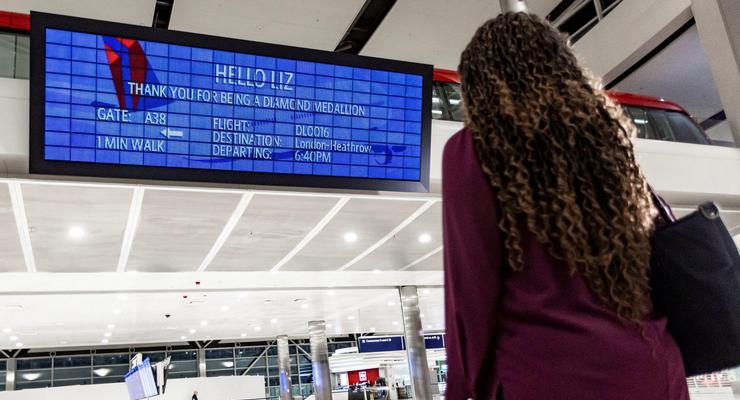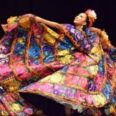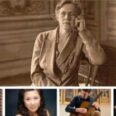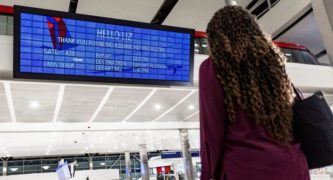
“Imagine several passengers looking at the same screen at the same time, but each one of them seeing his or her own detailed flight information which the others in the same area don’t see because they’re seeing their own individualized info. That’s Parallel Reality,” according to the company, which is called Misapplied Sciences.
With their “mind-bending technology” Misapplied Sciences made it possible for departing and connecting Delta Airlines customers at Detroit Metropolitan Airport to see their own personalized flight information – flight number, departure gate number and walking distance or time, destination city, and departure time – on a large screen.
The screen uses a multi-view pixel technology which displays personalized information to each individual passenger that looks at the screen.
“Parallel Reality displays use a proprietary multi-view pixel technology that controls the color of light emitted in each of many directions, ranging from tens of thousands up to a million directions for each pixel. These pixels allow a display to direct different content toward each of many viewers simultaneously. Parallel Reality displays are then paired with various sensors and interfaces for users to opt-in and interact with the system,” Albert Ng, Misapplied Sciences CEO, said.
Tech scouts at The Hangar, Delta Airlines’ own global innovation center, first came across Misapplied Sciences’ Parallel Reality technology over three years ago, and Delta leaders decided to partner with the Southern California startup to bring Parallel Reality to life, Delta Airlines reported in an article last month.
“All innovation at Delta is incredibly human-centric,” Matt Muta, Delta’s Vice President for Innovation, said in the article. “We’re not chasing shiny objects; we’re looking for ways to make our customers’ lives easier. With Parallel Reality, we saw an opportunity to personalize and simplify what can be a confusing experience – navigating the airport.”
Misapplied Science’s Albert Ng said his company’s Parallel Reality was a response to the many recent technology advances, including smartphone apps, smart glasses, and AR/VR, that have people absorbed in their personal devices. These devices, he said, were mostly geared toward technophiles.
“We wanted to create a technology for people of all demographics, from young kids to elderly grandparents, to experience a personalized world intuitively and seamlessly, without the encumbrances of small mobile screens or head-mounted displays,” Ng said.
Dave Thompson, Chief Creative Officer at Misapplied Sciences, said their company – a team of scientists, engineers, and designers with a history of transforming technology into amazing experiences – comes from a mix of backgrounds in theme parks, cruise ships, retail, resorts, immersive advertising, and real-world gameplay.
“And it’s not just about the creative side – we draw on our knowledge about implementation, operations, and maintenance,” Thompson said. “We put ourselves in the shoes of everyone who touches our technology. It’s an approach that drives our development efforts.”
Thompson said designers and operators of public venues have long wished for the ability to connect with each of their visitors personally, and that was something the team now at Misapplied Sciences also strived to achieve in their theme park and advertising careers.
“The technology we invented makes this possible. Visitors can be engaged based on their needs and preferences,” he said. “Maybe they’d like to be entertained with personalized media, or an adventure game, or a story about their journey through an interesting environment. Or, they might be trying to find a specific place, or item to purchase, or a special service, or assistance in their preferred language. By helping people connect with their environment on their terms, we can customize their real-world experience in a manner previously available only in the digital world.”
Thompson foresees a time when Parallel Reality technology will not only be in airports, but also in shopping malls, theme parks, resorts, stadiums, and anywhere where there are crowds of people. But the company also considers it important to give people a choice as to whether they want to use the technology or not.
“A neat thing about Parallel Reality technology is you can design fun, non-personalized interactions for people who aren’t interested in a customized experience, and then provide a whole different level of engagement with people who want all the benefits,” he said. “Everyone gets their own experience, and at a level of their own choosing. In any case, we take privacy seriously and are focusing on beneficial applications that make shared spaces more accessible, inclusive, enriching, rewarding, and fun, without being invasive.”
Misapplied Sciences is still continually enhancing Parallel Reality. Ng said upcoming generations of the product will have improved visual quality and physical robustness to allow for more applications in a variety of settings.
“Our goal is to create compelling, magical, delightful experiences for guests, and privacy and security are a critical part of that,” Ng said. “By design, the technology is opt-in only, and those who don’t opt-in see generic content. We don’t store or track users’ personal data.”
In the future, Parallel Reality may help advertising and marketing, where ads are targeted to each viewer’s needs, interests, behavior, and surroundings; in the international hospitality industry, where content can be in each viewer’s language; in traffic and transportation systems, where messaging and signals on roadways are specific to each zone, lane, and vehicle; and in various other applications that use digital technology.
To learn more about Misapplied Sciences and Parallel Reality, visit www.misappliedsciences.com.














 0 comments
0 comments


